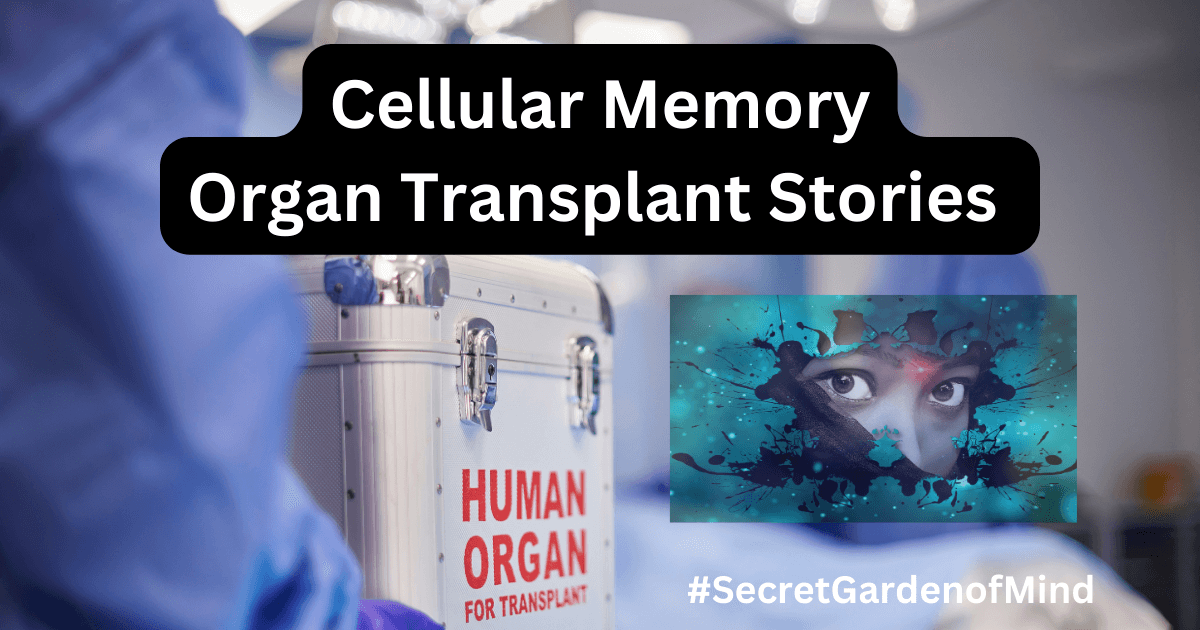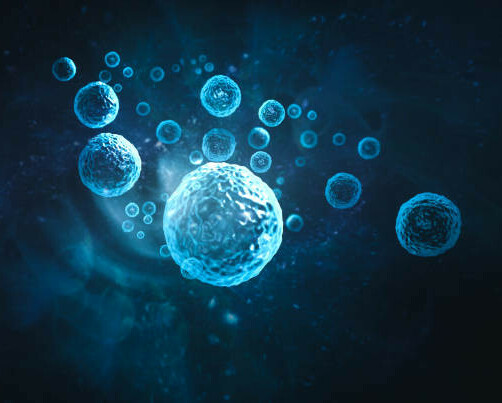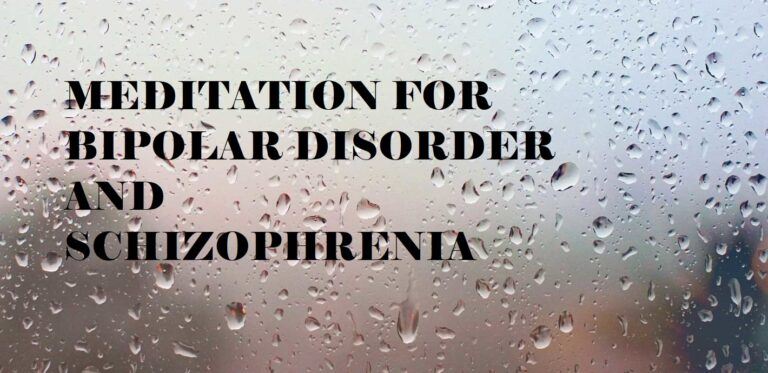Cellular Memory Organ Transplant Stories – Does This Really Happen?

The Incredible Power of Cellular Memory: Real-life Organ Transplant Stories
Cellular Memory Organ Transplant Stories are something that should not be possible but yet this is something that has captured the attention of scientists and researchers alike due to many reported cases.
The general consensus is the idea that it isn’t just our brains but our cells too have the ability to store memories and experiences.
This is obviously very strange but according to this in event that cells are transferred to another individual through organ transplantation the organ donors memories are also transferred.
This phenomenon has significant implications for the field of medicine, particularly in organ transplantation, as it raises questions about the nature of identity and the potential impact of receiving an organ from another person.
But does this really happen?
This is what we shall look to explore in today’s post>>>
Cellular Memory Organ Transplant Stories

Studying Cellular Memory in Organ Transplantation is crucial for several reasons.
Firstly, it allows us to gain a deeper understanding of how memories are stored and transmitted within the human body. It is not only knowledge that can help us unravel the mysteries of consciousness and shed light on the complex workings of the human mind but secondly, it has practical implications for improving the success rate of organ transplants.
By understanding how cellular memory affects the recipient, we can develop better strategies for matching donors and recipients, ultimately leading to more successful outcomes.
Key Takeaways
- Cellular memory is the idea that organs can retain memories and personality traits from their previous owners.
- There is scientific evidence to support the concept of cellular memory, including changes in behaviour and preferences in transplant recipients.
- The first successful organ transplant was performed in 1954, and since then, thousands of people have received life-saving transplants.
- Claire Sylvia, Sonny Graham, and Demi-Lee Brennan are just a few examples of transplant recipients who have reported experiencing cellular memory.
- While there is controversy surrounding the validity of cellular memory, continued research in this area could have important implications for the future of organ transplantation.
The Science Behind Cellular Memory
To comprehend cellular memory, we must first understand how memories are stored in cells. Memories are not solely confined to the brain; they are distributed throughout our entire body.
Every cell in our body contains DNA, which acts as a blueprint for our physical characteristics and also plays a role in storing memories.
DNA is composed of genes, which contain instructions for building proteins that carry out various functions in our body.
Recent research suggests that memories may be encoded in chemical modifications of DNA, known as epigenetic marks.
These marks can be influenced by our experiences and environment, altering gene expression and potentially leading to changes in cellular behaviour. This means that memories could be imprinted on our cells and passed down through generations.
Organ Transplantation: A Brief History
The history of organ transplantation dates back to ancient times when primitive attempts were made to replace damaged organs with those from animals or deceased individuals.
However, it wasn’t until the 20th century that significant advancements were made in this field.
The first successful organ transplant took place in 1954 when Dr. Joseph Murray performed a kidney transplant between identical twins.
Since then, organ transplantation has evolved significantly, with breakthroughs in surgical techniques, Immunosuppressive drugs, and organ preservation methods.
Today, organ transplants have become a routine procedure, saving countless lives and improving the quality of life for many individuals.
However, despite these advancements, there are still challenges and limitations that need to be addressed.
The First-hand Accounts of Cellular Memory
Several intriguing cases have emerged over the years, providing anecdotal evidence for the existence of cellular memory.
One such case is that of Claire Sylvia, who underwent a heart and lung transplant in 1988. After the surgery, she experienced inexplicable cravings for foods she had never liked before, such as beer and chicken nuggets. She also developed a strong attraction to motorcycles and had vivid dreams about a man named Tim L., who turned out to be the donor’s name.
Another remarkable story is that of Sonny Graham, a heart transplant recipient who began exhibiting personality traits and preferences similar to those of the donor. In this strange case not only did Sonny Graham go on to start a relationship with the wife of his donor after almost 40 years of being happily but like his donor he almost committed suicide in the exact same way.
Although, it is speculated that the donor’s wife may have murdered both men there are very unusual aspects of this case including drastic changes to Sonny Grahams personality more akin to that of his organ transplant donor.
And in the case of Demi-Lee Brennan this is a bit different. Demi-Lee was a young Australian Girl who received a Liver transplant and what doctors discovered was that not only did her blood type change but she was also found to have acquired the immune system of her donor due to the stem cells of her new liver. It in effect was basically a natural process of Bone Marrow transplant.
It certainly does raise questions. Is this actual proof of Cellular memory? This is only a handful of cases as well but how about this?
The Controversy Surrounding Cellular Memory
 While these firsthand accounts are compelling, they have faced skepticism from the medical community. Many argue that these experiences can be attributed to psychological factors, such as the power of suggestion or the influence of medications.
While these firsthand accounts are compelling, they have faced skepticism from the medical community. Many argue that these experiences can be attributed to psychological factors, such as the power of suggestion or the influence of medications.
Skeptics argue that the brain is the sole repository of memories and that the idea of cellular memory is unfounded. It does not explain such strange happenings though. Skeptics will try to argue anything no matter what is laid out in front of them but seriously…
Ethical concerns also arise when considering the implications of cellular memory. If memories and personality traits can be transferred through organ transplantation, what does this mean for the autonomy and identity of the recipient?
Should individuals be informed about the potential for cellular memory before undergoing a transplant? What if there Organ Donor is a serial killer or somebody with manic depression, or an alcoholic, drug addict, etc. There are so many possible negatives if this is true.
I would say it does seem to more than possible. If not from cells holding memories something like a psychic link. But also there is something called Water memory that might also be what is at play here.
The Future of Cellular Memory Research
Advancements in technology have opened up new avenues for exploring cellular memory. Techniques such as epigenetic profiling and advanced imaging methods allow researchers to delve deeper into the molecular mechanisms underlying memory storage in cells.
By studying these processes, we may uncover new insights into how memories are encoded and transmitted.
Furthermore, ongoing research in stem cell biology holds promise for regenerative medicine and organ transplantation. Stem cells have the potential to differentiate into various cell types, including those needed for organ regeneration.
If we can harness the power of stem cells to grow organs in the laboratory, it could revolutionize the field of transplantation and eliminate the need for donor organs altogether.
The Implications of Cellular Memory for Organ Transplants
Understanding cellular memory has significant implications for improving the success rate of organ transplants. By considering not only tissue compatibility but also factors such as personality traits and emotional well-being, we can better match donors and recipients.
This personalized approach could lead to better outcomes and increased long-term survival rates if this is really what is happening.
Additionally, cellular memory has the potential to impact the donor-recipient relationship. If recipients experience memories or personality changes from their donors, it could create a unique bond between them. This connection may foster gratitude and a sense of connection to the donor’s family, leading to a deeper appreciation for the gift of life.
Other Strange Cases of Organ Transplants
This has actually fascinated me for a few years now. I remember when I got my provisional driving license there was a checkbox if I wanted to be an organ donor. Like god help anyone that gets my organs (if this is true) lol but seriously this is something that the more stories you hear about the more you believe it could be true.
A few to check out on YouTube will share below;
Girl with New Heart Solves Murder of Her Donor
Emergency Organ Transplant Alters Brain Function and Exhibits New Abilities and Interests She Never Had Before
The Unexplained Files – Do Organ Transplants Carry Memories
So it is interesting, as so many cases have been reported. The stories shared here are surely only just the tip of the Iceberg. You could probably spend all day finding different accounts of Cellular Memory, and it isn’t just Organ Transplants it’s Blood Transfusions.
I decided to write this as my sister recently had a blood transfusion after giving birth. It made me think about all the cases of Cellular Memory and it’s very interesting. There is so much we don’t understand about ourselves, so much is beyond science at its very foundations.
Scientists now suggest that memories may be stored as chemical codes inside the proteins that our DNA is wound around but really what is actually happening here?
The Incredible Power of Cellular Memory
In conclusion, Cellular Memory is a captivating concept that challenges our understanding of the human body and consciousness. While skepticism and ethical concerns surround this phenomenon, the firsthand accounts and ongoing research suggest that there may be more to cellular memory than meets the eye.
Studying cellular memory in the context of organ transplantation not only expands our knowledge of memory storage but also has practical implications for improving transplant outcomes. By embracing this field of research, we can unlock the incredible power of cellular memory and continue to push the boundaries of medical science.
I shall finish this article off here but seriously if this is something that interests you check out the book I have shared in the link below.
Further Reading:
Claire Sylvia – A Change of Heart Book
Also, if you would like to share your own stories of Cellular Memory or anything related to this topic please take the time to leave us a comment below>>





alzheimer disease therapy amazon bean products bean products bean bags bean products bed pillows bean products bolster bean products chicago bean products coupon code bean products decorative accent pillows bean products shredded foam bean products usa bean products yoga Dream Diaries energy healing guided meditation for cancer guided meditation for cancer healing guided meditation for cancer patients how to lucid dream Law of Attraction Light and Sound Machine lucid dream herbs Manifestation Marcus Aurelius Marcus Aurelius Meditations Marcus Aurelius Most Famous Quotes meditation meditation alzheimer meditation alzheimer prevention meditation alzheimers meditation dementia meditation for cancer healing meditation for memory loss meditation memory meditation memory loss mr bean new products pre dementia reiki alzheimer reiki dementia reiki distance healing remote viewing exercises free remote viewing future remote viewing future predictions remote viewing gambling The Source third eye meditation transcendental meditation for cancer



